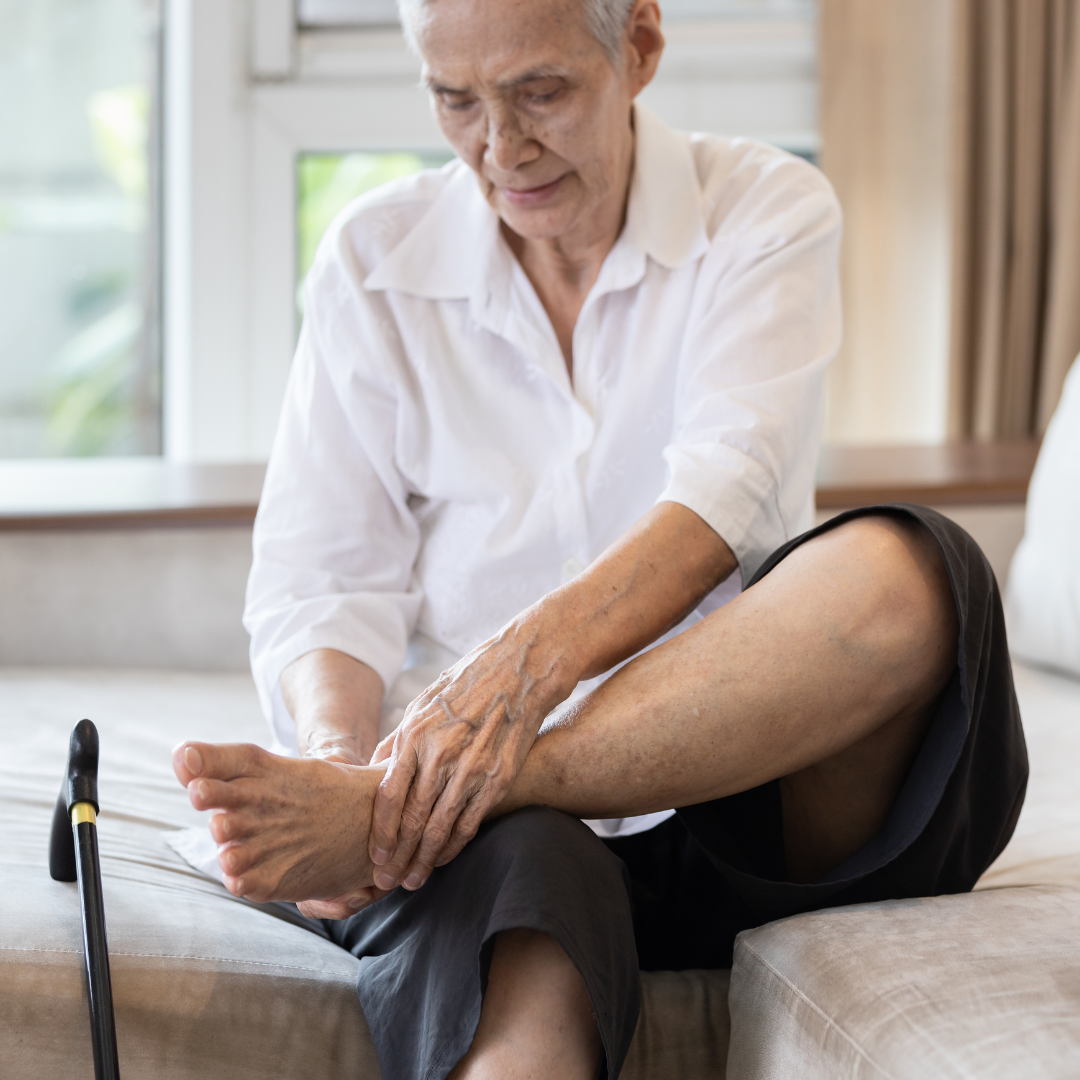Our feet carry us through life, but as we age, they often require a little extra care. For patients 65 and older, common foot conditions like plantar fasciitis, bunions, corns, and calluses can make walking and daily activities more challenging. Proper foot care not only increases comfort but also improves overall mobility and quality of life. It’s our goal at Podiatry Associates of Florida to keep our patients on the golf course, walking for exercise, doing yoga and other sports and healthy lifestyle activities without pain for as long as possible.
Here’s what you need to know about keeping your feet healthy as you grow older—and some steps you can take to prevent or manage these common issues.
Common Foot Issues in the Elderly
- Plantar Fasciitis
This condition occurs when the thick band of tissue (the plantar fascia) connecting your heel to your toes becomes inflamed. Often causing heel pain, plantar fasciitis is particularly common among older adults who may have spent decades on their feet.
How to manage it:
- Use supportive shoes with proper arch support and cushioning.
- Stretch your calves and feet daily to improve flexibility.
- Apply ice to the affected area to reduce inflammation.
- Bunions
Bunions are bony bumps that form at the base of the big toe. Over time, they can lead to discomfort, swelling, and even difficulty finding shoes that fit properly.
How to manage it:
- Wear shoes with a wide toe box to give your toes extra space.
- Use orthotic inserts or pads to cushion the bunion.
- If the pain persists, talk to your podiatrist about advanced treatments or surgery.
- Corns and Calluses
Corns and calluses develop from repeated friction or pressure on the skin, often from ill-fitting shoes or changes in foot structure over time. While they might not seem serious, they can cause significant discomfort if left untreated.
How to manage it:
- Avoid shoes that rub or put pressure on your toes or other parts of the foot.
- Use a pumice stone to gently exfoliate thickened skin. Be cautious not to overdo it, especially if you have sensitive or thin skin.
- Keep your feet moisturized to prevent excessive dryness that can worsen calluses.
Dr. Herbst’s Tips for Keeping Your Feet Healthy
Beyond addressing specific issues, it’s important to adopt a proactive approach to foot care. Here are some simple tips to keep elderly feet healthy and happy.
Daily washing and thoroughly drying your feet (especially between the toes) help prevent infections like athlete’s foot or fungal nails.
Cut toenails straight across to avoid ingrown nails, which can be painful and prone to infection.
Apply lotion to your feet daily to keep the skin soft and prevent cracking. Avoid putting lotion between the toes, as excess moisture there can lead to fungal infections.
Choose shoes that provide cushioning, arch support, and enough room for your toes. Avoid high heels or shoes with hard, rigid soles.
Inspect your feet weekly for changes like cuts, swelling, redness, or unusual growths. Catching these signs early can help prevent serious complications.
Routine check-ups can help detect potential issues early and ensure your feet remain in good health. This is especially critical for seniors with underlying conditions like diabetes, which can complicate foot care. Schedule your appointment with Dr. Herbst at Podiatry Associates of Florida at 904-268-6993.

